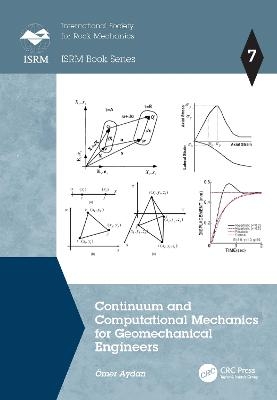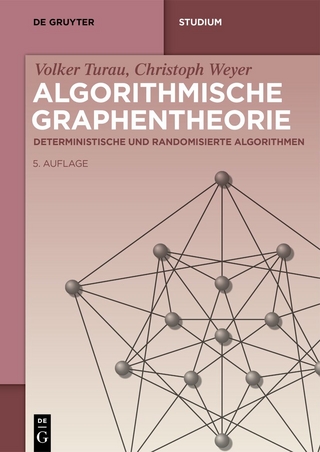
Continuum and Computational Mechanics for Geomechanical Engineers
CRC Press (Verlag)
978-0-367-68053-4 (ISBN)
The field of rock mechanics and rock engineering utilizes the basic laws of continuum mechanics and the techniques developed in computational mechanics. This book describes the basic concepts behind these fundamental laws and their utilization in practice irrespective of whether rock/rock mass contains discontinuities.
This book consists of nine chapters and six appendices. The first four chapters are concerned with continuum mechanics aspects, which include the basic operations, definition of stress and strain tensors, and derivation of four fundamental conservation laws in the simplest yet precise manner. The next two chapters are the preparation for computational mechanics, which require constitutive laws of geomaterials relevant to each conservation law and the procedures for how to determine required parameters of the constitutive laws.
Computational mechanics solves the resulting ordinary and partial differential equations. In Chapter 7, the methods of exact (closed-form) solutions are explained and they are applied to ordinary/partial differential equations with solvable boundary and initial conditions. In Chapter 8, the fundamentals of approximate solution methods are explained for one dimension first and then how to extend them to multi-dimensional problems. The readers are expected to learn and clearly understand how they are derived and applied to various problems in geomechanics.
The final chapter involves the applications of the approximate methods to the actual problems in practice for geomechanical engineers, which cover the continuum to discontinuum, including the stress state of the earth as well as the ground motions induced by earthquakes. Six appendices are provided to have a clear understanding of continuum mechanics operations and procedures for how to deal with discontinuities/interfaces often encountered in rock mechanics and rock engineering.
Dr. Ömer Aydan was born in 1955, and studied Mining Engineering at the İstanbul Technical University, Turkey (B.Sc., 1979), Rock Mechanics and Excavation Engineering at the University of Newcastle upon Tyne, UK (M.Sc., 1982), and finally received his Ph.D. in Geotechnical Engineering from Nagoya University, Japan in 1989. He worked at Nagoya University as a research associate (1987-1991), and at the Department of Marine Civil Engineering at Tokai University, first as Assistant Professor (1991-1993), then as Associate Professor (1993-2001), and finally as Professor (2001-2010). He then became Professor of the Institute of Oceanic Research and Development at Tokai University, and he moved to Department of Civil Engineering, the University of Ryukyus (Nishihara, Okinawa, Japan) the professor of Material Science and he retired at the March of 2020 as Emeritus Professor. He has been an adjunct staff of the University of the Ryukyus Disaster Prevention Research Center for Island Regions since 2014 and served as the director of the Center until he retired. He established the natural disaster simulation facility. Dr. Ömer Aydan has played an active role on numerous ISRM, JSCE, JGS, SRI and Rock Mech. National Group of Japan committees, and has organized several national and international symposia and conferences. He organized 2019 Rock Dynamics Summit in Okinawa in May 7-11, 2019 as the world top level conference in Rock Dynamics. He was also made Honorary Professor in Earth Science by Pamukkale University in 2008. He is currently the Vice President at Large of the International Society for Rock Mechanics and Rock Engineering. He was appointed as the associate editor of the Journal Rock Mechanics and Rock Engineering in April, 2020. He is the author and/or one of the authors of more than 600 scientific papers and the author of five international books on rock mechanics and co-authored five more international books.
1. Fundamental operations 2. Stress analysis 3. Deformation and strain 4. Fundamental conservation laws 5. Constitutive laws 6. Laboratory tests 7. Methods for exact (closed-form) solutions 8. Methods for approximate solutions 9. Applications of approximate methods in geo-engineering problems Appendices
| Erscheinungsdatum | 23.04.2021 |
|---|---|
| Reihe/Serie | ISRM Book Series |
| Zusatzinfo | 25 Tables, black and white; 14 Line drawings, color; 167 Line drawings, black and white; 48 Halftones, black and white; 14 Illustrations, color; 215 Illustrations, black and white |
| Verlagsort | London |
| Sprache | englisch |
| Maße | 174 x 246 mm |
| Gewicht | 970 g |
| Themenwelt | Mathematik / Informatik ► Informatik ► Software Entwicklung |
| Technik ► Bauwesen | |
| Technik ► Elektrotechnik / Energietechnik | |
| Technik ► Umwelttechnik / Biotechnologie | |
| ISBN-10 | 0-367-68053-X / 036768053X |
| ISBN-13 | 978-0-367-68053-4 / 9780367680534 |
| Zustand | Neuware |
| Informationen gemäß Produktsicherheitsverordnung (GPSR) | |
| Haben Sie eine Frage zum Produkt? |
aus dem Bereich


